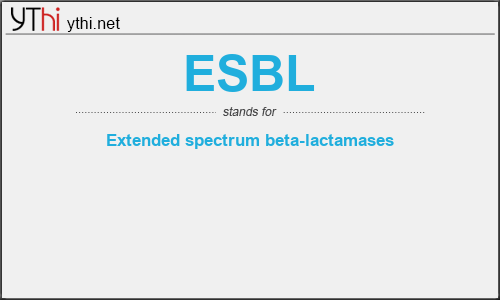What does ESBL mean? What is the full form of ESBL?
The Full Form of ESBL is Extended spectrum beta-lactamases.
Extended-spectrum beta-lactamases (ESBL) are enzymes that confer resistance to most beta-lactam antibiotics, including penicillins, cephalosporins, and the monobactam aztreonam. Infections with ESBL-producing organisms have been associated with poor outcomes.
Community and hospital-acquired ESBL-producing Enterobacteriaceae are prevalent worldwide [1]. Reliable identification of ESBL-producing organisms in clinical laboratories can be challenging, so their prevalence is likely underestimated. Carbapenems are the best antimicrobial agent for infections caused by such organisms.
The types and detection of extended-spectrum beta-lactamases as well as the epidemiology and treatment of organisms that produce them are discussed in this topic. The clinical features and diagnosis of the infections that ESBL-producing organisms often cause are discussed elsewhere. (See “Gram-negative bacillary bacteremia in adults” and “Acute complicated urinary tract infection (including pyelonephritis) in adults” and “Epidemiology, pathogenesis, microbiology, and diagnosis of hospital-acquired and ventilator-associated pneumonia in adults” and “Clinical features, diagnosis, and treatment of Klebsiella pneumoniae infection”.)
ESBL
means
Extended spectrum beta-lactamases![]()
Translate Extended spectrum beta-lactamases to other language.


Leave a Reply
You must be logged in to post a comment.